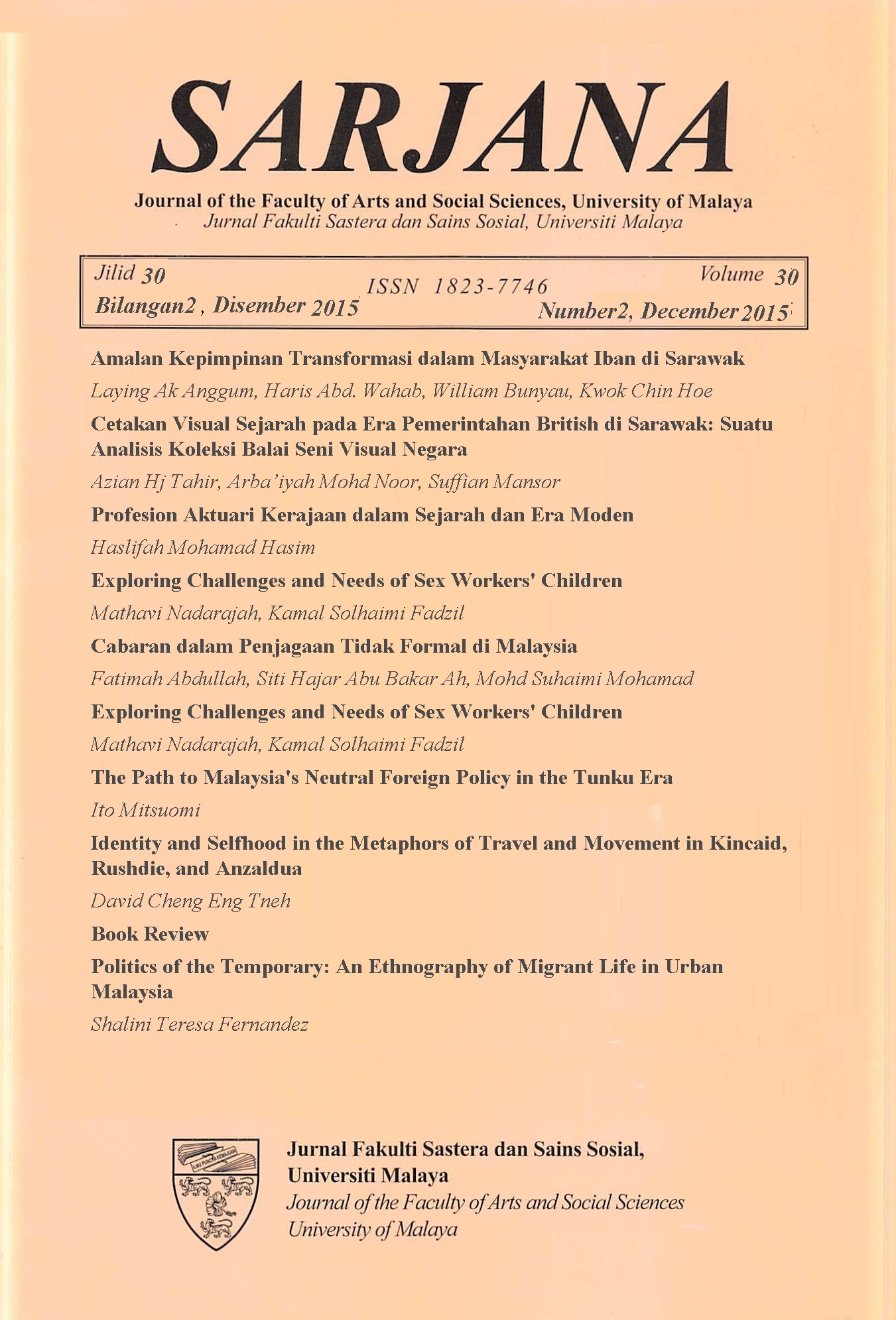Cabaran dalam Penjagaan Tidak Formal di Malaysia
Main Article Content
Abstract
Issues on informal care will be crucial in the future due to social change in and outside the family. Current economic change and increase in quality of health among the population in this country has had a significant impact on family demographics when many people marry at a later age, with few children, or without any children, or even remain unmarried and single. Although many people may live to older age, most of them need special care due to chronic disease or disability. Some may have to take care of themselves on their own, while the rest may be left to carers who are too young or too old, or by foreign maids. Most of the carers (either family members or maids) are not trained especially on how to deal with persons who are chronically ill or disabled. This article discusses challenges faced by informal caregivers. Data presented in this paper is based on several studies about informal care in the family (Fatimah et al. 2009, Siti Hajar et al. 2010 dan Mohamad 2010). Findings from those studies showed that economic factors as well as social support, family values and relationships as well as social environment have an important impact on the ability of the family to provide informal care or to carry out their informal caregiving roles.

